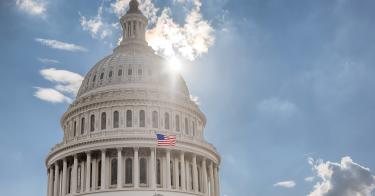“No taxation without representation.” It was the rallying cry of the American Revolution, and to this day remains printed on the license plates in Washington, D.C.
Sadly, this important principle was recently swept away by the Supreme Court.
In June, the court decided in Wayfair v. South Dakota to toss out a 25-year-old ruling that required a business to be physically located in a state in order to be required to collect that state’s sales taxes. This became known as the “physical presence” standard.
Now, without the protection of the physical presence standard, every small business that sells online could be subject to the more than 10,000 different taxing jurisdictions, each with their own rates and rules about what is taxable.
That could be devastating for small retailers. The compliance costs alone could put many out of business.
Under the court’s ruling, businesses are now subject to mandates from states with which they have no physical connection, and whose policymakers face no accountability for the tax and compliance costs they impose.
The good news is that Congress has the authority to fix the problem created by the court, and it’s already getting started. The House Judiciary Committee recently held a hearing to examine what Congress should do next.
In that hearing, Chad White, the owner of a small online company, Class-Tech-Cars Inc., told Congress that “small businesses are the growth engine of our economy, and without important protections, we risk preventing new entrepreneurs from starting successful online businesses.”
Expanded sales tax collection hurts small businesses the most. Larger firms like Amazon are better equipped to internalize the cost of collecting the proper tax in every state and jurisdiction. Small businesses lack the same capabilities.
Andrew Moylan, executive vice president of the National Taxpayers Union Foundation, agreed that small businesses are “essentially operating at the mercy of state tax collectors across the country.” White added that he has “had other small business entrepreneurs ask if it is even worth it to start an online small business in the light of these new tax burdens.”
Small businesses will now live in a constant state of uncertainty about the tax laws of distant states. That will hurt business formation and our economy as a whole.
Moylan continued: “The court rewrote our understanding of state involvement in interstate commerce and has opened the floodgates to burdensome levies on businesses large and small, regardless of location.” Grover Norquist, president of Americans for Tax Reform, summed up the damage by noting that governments can now tax “those who have no political power, no vote, no voice.”
The new status quo under the Wayfair decision is untenable. It opens the door to a wild west for state sales taxes across the country. The important takeaway from the Judiciary Committee hearing is that the Supreme Court got it right 25 years ago, and it was wrong to second-guess that decision.
Congress must now step in to recodify the physical presence protection. Taxation without representation sparked the flame for American independence—we must act again to keep it alive.
This piece originally appeared in The Daily Signal



